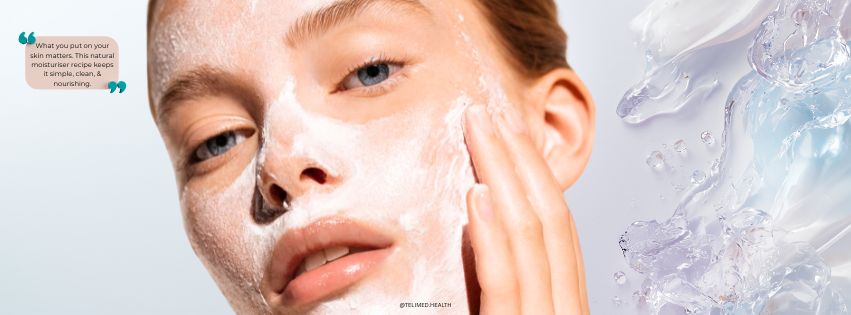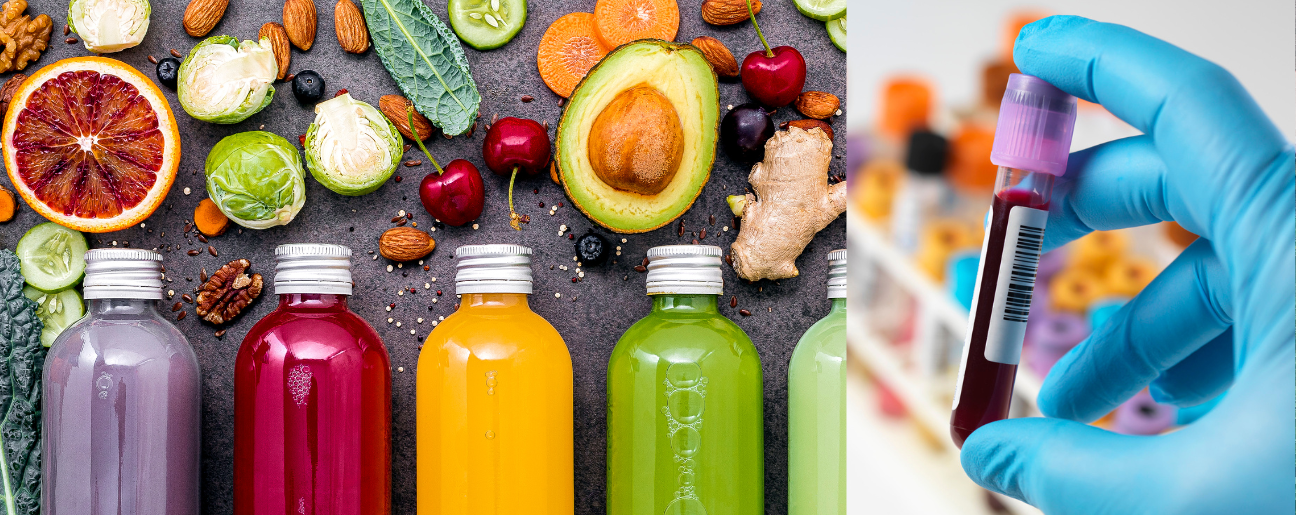Why vaping is so hard to quit

Vapes were marketed as the “safer” option, but for many people they’ve simply become a more discreet, more constant way to use nicotine. Nicotine stimulates reward pathways in the brain — particularly dopamine — and over time, your nervous system learns a very efficient loop:
Trigger → stress / boredom / social cue → reach for vape → dopamine hit → brief relief.
Do that enough times and the brain literally wires that loop in as a default response. On top of that, withdrawal symptoms (irritability, brain fog, low mood, anxiety, sleep disturbance) are linked to changes in neurotransmitters and stress chemistry — not just “lack of discipline”.
So a successful quit plan ideally works on both:
- the neural pathways and habits, and
- the biochemistry that underpins mood, energy and cravings.
That’s where hypnotherapy plus naturopathic support can be a powerful combo.
How hypnotherapy supports quitting vaping
Hypnotherapy aims to work with the subconscious mind — the part that stores automatic habits, associations and emotional responses. Rather than just telling yourself, “I need to stop”, hypnosis helps re-frame the internal story around vaping and install new patterns.
Rewiring the “vape loop”
In a hypnotherapy session, people are usually guided into a deeply relaxed, focused state. In that state, the subconscious is more receptive to suggestion. A skilled clinical hypnotherapist can help you:
- Unhook old associations — for example “coffee = vape” or “stress = vape” can be replaced with alternate responses like slow breathing, grounding, or a different ritual.
- Reduce the emotional charge around cravings — suggestion, imagery and NLP‐style techniques can soften the perceived “urgency” of a craving and increase the sense of choice.
- Strengthen identity as a non-vaper — many protocols deliberately build a new self-image: someone who protects their lungs, energy and mental clarity rather than someone “trying to quit”.
In practice, hypnotherapy can be especially useful for people who:
- Feel “stuck” in all-or-nothing thinking (“I’ve blown it, may as well keep vaping”).
- Have strong emotional or stress-linked triggers.
- Prefer a more experiential, mind–body style of therapy.
It’s not magic, and it’s not a replacement for medical care, but it can be a powerful tool for retraining the brain’s response to triggers and cravings.
Neuroplasticity: changing the brain’s wiring (on purpose)
The good news is that the brain is not fixed. Through neuroplasticity, neural pathways can be strengthened, weakened or reshaped across your lifetime. Repeated experiences — thoughts, behaviours, emotional states — either reinforce old circuits or build new ones.
Approaches like hypnosis, NLP and meditation all use focused attention and repetition to help:
- Deactivate circuits linked with ritualised vaping behaviours and “I need it to cope” beliefs.
- Reinforce new patterns linked with calm, self-control and healthier coping strategies.
On a biological level, this is mirrored by changes in neurotransmitters (like dopamine and GABA), receptor sensitivity and even gene expression in brain regions involved in addiction. (Chang et al., 2021)
That’s where the naturopathic side can make the ride smoother.
Where naturopathy fits in: supporting the brain and body
While hypnotherapy works on the software (your patterns and beliefs), naturopathy works on the hardware of your nervous system, gut, hormones and detox pathways.
Key goals in a quit-vaping naturopathic plan often include:
- Supporting neurotransmitter balance (serotonin, dopamine, GABA).
- Reducing oxidative stress and inflammation.
- Stabilising blood sugar and energy.
- Improving sleep and stress resilience.
Nutrients for neurotransmitter support
Neurotransmitters like serotonin, dopamine and GABA are built from amino acids plus vitamin and mineral cofactors. Reviews in nutritional neuroscience show:
- Vitamin B6 (pyridoxine) is a required co-enzyme for the synthesis of serotonin and dopamine as well as GABA; even mild deficiency can reduce their production and impact mood, sleep and stress regulation. (Kennedy, 2016)
- Folate and vitamin B12 are also important in neurotransmitter synthesis and mood regulation; deficiency is linked to higher rates of depression. (Gasmi et al., 2022)
- Diets supplying adequate protein (amino acid precursors) and micronutrients help maintain neurotransmitter balance and support mental health. (Briguglio et al., 2018)
From a naturopathic perspective, this might translate into:
- Ensuring enough protein across the day (amino acids for serotonin, dopamine, GABA).
- Targeted B-complex vitamins, magnesium and other cofactors where indicated.
- Gut support (because a lot of serotonin is made in the gut, and dysbiosis can influence mood and cravings). (Briguglio et al., 2018)
This isn’t about “happy pills in a capsule”, but about giving your brain the raw materials it needs to feel more stable so you’re less likely to reach for the vape just to feel normal.
NAC: a promising tool in addiction support
One compound that often comes up in integrative addiction care is N-acetylcysteine (NAC) — an amino-acid derivative used for years as a mucolytic and in paracetamol overdose. More recently, it’s been researched for substance use disorders.
How NAC works (in a nutshell)
NAC donates cysteine, which is used to make glutathione (a major antioxidant) and also modulates the brain’s glutamate system — a key player in reward, craving and neuroplasticity. (Dean et al., 2011)
Pre-clinical and early clinical work suggests NAC can help normalise glutamate signalling in addiction‐related brain areas and may reduce relapse in animal models. (Smaga et al., 2021)
A 2014 systematic review of NAC in addictions (including nicotine, cannabis and cocaine) concluded NAC shows potential in reducing addictive behaviours, particularly in cocaine and cannabis dependence, but that more high‐quality trials are needed. (Asevedo et al., 2014)
A 2024 meta‐analysis focusing on craving in substance use disorders found that NAC may reduce craving intensity, though effect sizes were modest and studies heterogeneous. (Cuocina et al., 2024)
Another meta-analysis from 2021 found NAC improved various clinical symptoms of substance use disorders albeit with caution on strength of evidence. (Chang et al., 2021)
Specific trials in smoking and nicotine use are underway or in early phases, including studies looking at NAC as an anti-craving aid in tobacco smokers and as part of combination approaches to nicotine addiction. (Chang et al., 2021)
For vaping, we don’t yet have large, specific RCTs — but mechanistically the nicotine dependence and brain pathways look very similar, so NAC is sometimes used off-label as part of integrative programs under practitioner supervision.
Important: NAC is not a stand-alone cure for addiction, and it’s not appropriate for everyone. It should only be used with guidance from a qualified health professional who can screen for interactions, dosing and suitability.
Putting it together: an integrated plan to quit vaping
A holistic, evidence-informed approach might look like this:
- Behavioural + subconscious work (hypnotherapy & counselling)
- Clinical hypnotherapy to work with subconscious patterns, triggers and identity as a non-vaper. (Alldredge et al., 2024)
- CBT or other counselling as needed to build coping skills, relapse-prevention strategies and address underlying anxiety, stress or trauma.
- Naturopathic care to stabilise the nervous system
- Assess diet, gut health, sleep, stress and micronutrient status.
- Support neurotransmitter production with food, lifestyle and targeted nutrients such as B-vitamins, magnesium and amino acids where indicated. (Kennedy, 2016; Briguglio et al., 2018)
- Consider evidence-informed adjuncts like NAC as part of a broader treatment plan, not in isolation. (Chang et al., 2021; Cuocina et al., 2024)
- Lifestyle practices that reinforce new pathways
- Meditation, breathwork, yoga and movement can all help regulate the nervous system and complement both hypnotherapy and naturopathic strategies.
- Consistent routines (meals, sleep, exercise) create a predictable rhythm that makes cravings easier to ride out. (Briguglio et al., 2018)
The bottom line
Quitting vaping is not about being “strong enough” — it’s about giving your brain and body the right conditions to change.
- Hypnotherapy can help you rewire the mental and emotional patterns that keep you stuck in the vape loop.
- Naturopathic care, including targeted nutrients like NAC (where appropriate), can support neurotransmitter balance, detoxification and resilience so you don’t feel like a bundle of exposed wires while you quit.
With a team around you — hypnotherapist and naturopath working together — quitting vaping becomes less about sheer willpower and more about strategic, supported neuroplasticity.
You’re not broken. Your brain just did a very good job learning an unhelpful habit. With the right tools, it can learn something better.
Reference list
Asevedo, E., Mendes, A. C., Berk, M. & Brietzke, E., 2014. Systematic review of N-acetylcysteine in the treatment of addictions. Brazilian Journal of Psychiatry, 36, pp.168–175.
Briguglio, M. et al., 2018. Dietary neurotransmitters: A narrative review on current knowledge. Nutrients, 10(5), 591.
Chang, C.–T., Hsieh, P.–J., Lee, H.–C., Lo, C.–H., Tam, K.–W., & Loh, E.–W., 2021. Effectiveness of N-acetylcysteine in treating clinical symptoms of substance abuse and dependence: a meta-analysis of randomized controlled trials. Clinical Psychopharmacol Neurosci., 19(2), pp.282–293.
Cuocina, A., Aiello, P., Cutrufelli, A., Rampello, S., Rapisarda, V., Rodolico, G., Cantarella, G., Signorelli, M. & Bernardini, G., 2024. Effect of N-acetylcysteine on craving in substance use disorders. Frontiers in Pharmacology, 15, 1462612.
Dean, O., Giorlando, F. & Berk, M., 2011. N-acetylcysteine in psychiatry: Current therapeutic evidence and potential mechanisms of action. Journal of Psychiatry & Neuroscience, 36(2), pp.78–86.
Gasmi, A. et al., 2022. Neurotransmitter regulation and food intake: The role of dietary sources in neurotransmission. Molecules, 28(1), 210.
Kennedy, D.O., 2016. B vitamins and the brain: Mechanisms, dose & efficacy — A review. Nutrients, 8(2), 68.
Recent Blogs



Gerson Therapy: A Holistic Adjunct to Cancer Care
Discover Holistic cancer care: Gerson Therapy and RGCC
Read More


